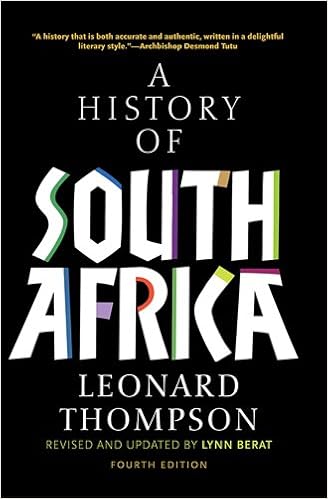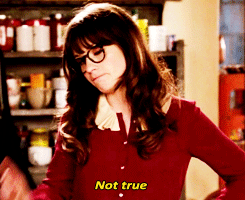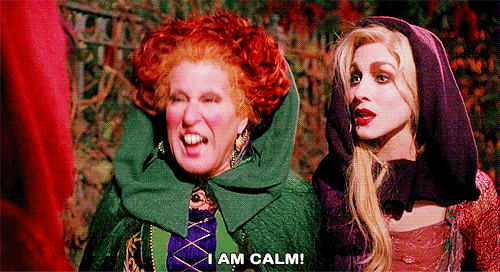Here it is halfway through the year (well more than half but not that much more), and I have read three of my planned four histories of African nations for 2017. YAY ME. Because I happened to see it at my library, and because it was blurbed by Desmond Tutu, I picked up a copy of Leonard Thompson and Lynn Berat’s A History of South Africa.

One thing that struck me about South African history is the role that economics plays in how colonialism ends up working. In the early-to-mid 1800s, England had a presence in South Africa, right? And they came into conflict with the descendants of the Dutch settlers (the Afrikaners) because they wanted to impose a system of government that gave equal rights to black and white citizens. However, while the British found it all well and good to give nominal rights to black folks at a time and in a place where their economic interests were not engaged–
Actually, before I finish that clause, a sidebar: One of the huge reasons that England was able to pride itself on its relatively humane treatment of its colonies in this era (early to mid-1800s) is that it had massive massive economic control. By the middle of the Victorian era, Britain controlled close to a majority of world trade in manufactured goods. They were in a unique economic situation that enabled them to be a little less horrible to small, economically unimportant outposts like South Africa. End sidebar.
–they massively changed their tune once it became clear that South Africa had valuable mineral resources. The Afrikaners (descendants of the Dutch colonizers) were prone to kidnapping African children as “apprentices” (but actually slaves) to work on their farm land — among other things — so it would seem as though the British government, taking over after the Boer War, would be a step up.

Because the British still didn’t want to be bothered governing a colony, they largely let the Afrikaners continue to run things. Mining companies cut wages, tightened pass laws to keep black laborers from traveling freely within the country, and brought in scabs from China any time the labor force balked at the treatment they were receiving and tried to strike.
I also learned a brand new thing about the way apartheid government functioned, which I not only didn’t know before but had not even the faintest inkling had ever existed. Apparently, the apartheid government in South Africa created these places called “Homelands,” which were small rural territories to which black South Africans were given citizenship to prevent them from living in urban areas. And the government was like “See? We have granted independence to our black citizens, just like all the Europeans wanted us to!”

The actual effect of these Homelands was not to provide any measure of self-determination to the indigenous populations but the exact opposite. Unless white-run businesses wanted the cheap labor, black South Africans were not permitted to live in “white” areas and would be resettled (forcibly, if necessary) into one of the designated Homelands. This also (surprise!) had the effect of curtailing the amount of land that black folks could occupy or own. The various Homelands were separated from each other by swathes of white-controlled territory, and “citizens” couldn’t leave their designated Homelands without specific permission, which of course made it very hard for black South Africans to put together an organized resistance.
They did, though. In spite of government brutality and limited resources and the reluctance of Thatcher-led Britain and Reagan-led America to impose sanctions on the apartheid government, the country’s majority of black people continued to resist, first by the nonviolent means advocated by Gandhi and Martin Luther King, then with something closer to guerrilla warfare.

One of my big takeaways was that the country was deeply lucky to have Nelson Mandela (yes yes I know this is the HOTTEST OF TAKES), who fought tirelessly for freedom under apartheid and then worked like hell to make peace a possibility in a deeply, deeply divided country. The tricky bit is that his popularity gave extraordinary power to his party, the ANC, which remains overwhelmingly dominant in South African politics. If you are a student of history you will note that dominance by a single party is not a recipe for longterm national stability. WHICH IS WHY GERRYMANDERING IS A FUCKING AWFUL IDEA, AMERICA.

This has been yr humble narrator learning more things about African countries, one by one. Some day soon I’ll know everything about everything, so stand by for that plausible, non-distant day. If you want to check out the main page for this reading project, it’s here. If you want to suggest a country for me to learn about next, hit me up in the comments!